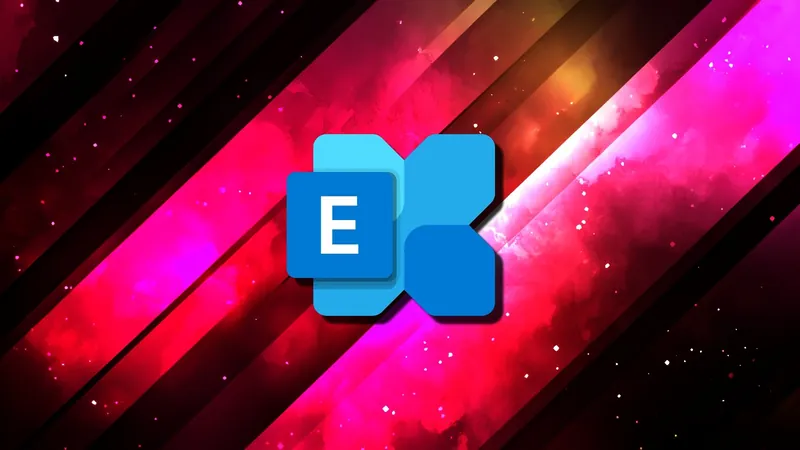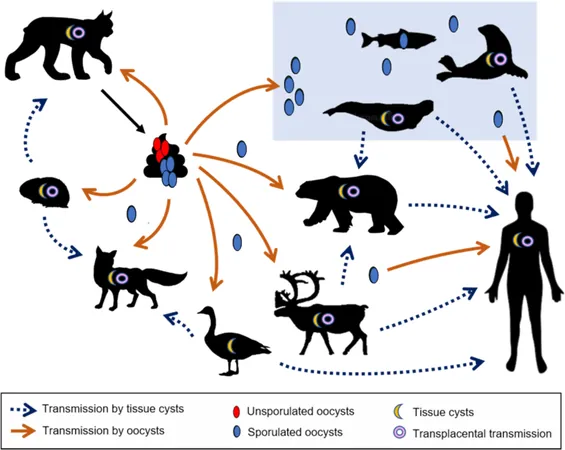
Meta Unveils Llama 4: A New Frontier in AI Models!
2025-04-05
Author: Emily
Meta Unveils Llama 4: A New Frontier in AI Models!
Meta has made waves in the tech world by releasing its latest suite of AI models, collectively known as Llama 4. Launched on a Saturday, the lineup includes three innovative models: Llama 4 Scout, Llama 4 Maverick, and the yet-to-be-released Llama 4 Behemoth.
These models have been meticulously trained on vast amounts of unlabeled text, images, and videos, equipping them with a remarkable capacity for broad visual understanding. This latest development marks a pivotal moment for Meta, particularly in light of the escalating competition from Chinese AI lab DeepSeek, whose models have reportedly outperformed earlier versions of Meta's flagship Llama models. Reacting to this competitive pressure, Meta ramped up its development efforts to improve its own offerings and stay ahead in the AI race.
Currently, Llama 4 Scout and Llama 4 Maverick are accessible for developers via Llama.com and platforms like Hugging Face, while Behemoth is still in training. Notably, Meta's AI assistant, which integrates with popular apps like WhatsApp, Messenger, and Instagram, has been updated to utilize Llama 4 in 40 countries, although its multimodal features—able to process images and text together—are limited to the US in English for now.
However, the release comes with caveats. The Llama 4 models are subject to specific licensing restrictions. Companies based in the EU—and those with more than 700 million monthly active users—must obtain special permission to utilize the models, a measure that reflects the stringent AI regulations in the region.
Meta has emphasized that Llama 4 represents a landmark advancement in its AI capabilities, introducing a mixture of experts (MoE) architecture. This innovative feature allows the models to distribute tasks more efficiently, enhancing both training and response speed. For instance, while Maverick boasts 400 billion total parameters, only 17 billion of these are active at any given time across 128 experts. Scout, on the other hand, features an astounding context window of 10 million tokens, meaning it can comprehend lengthy documents and complex queries more effectively than its predecessors.
Evaluations suggest Maverick outperforms several established competitors, including OpenAI's GPT-4o, particularly in creative writing and programming tasks. However, it still falls slightly behind the most advanced models, such as Google’s Gemini 2.5 Pro and Claude 3.7 Sonnet. Meanwhile, Scout excels in tasks like document summarization, exhibiting significant potential for businesses reliant on data analysis.
The much-anticipated Behemoth is projected to require even more powerful hardware, featuring an impressive 288 billion active parameters. Internal benchmarking indicates it may even surpass notable AI benchmarks in STEM evaluations, with a unique architecture designed to optimize problem-solving capabilities.
Importantly, Meta has adjusted Llama 4's response mechanisms, aiming to address perceptions of bias towards politically sensitive topics. A spokesperson noted that Llama 4 is now "dramatically more balanced," striving to provide factual responses across diverse viewpoints. This adjustment seems particularly relevant given the scrutiny on AI models and their alleged biases.
Critics, including political figureheads aligned with conservative ideologies, have lambasted AI chatbots for perceived politicization. Figures like Elon Musk have voiced concerns that platforms like OpenAI's ChatGPT exhibit a bias, suggesting that the discourse surrounding AI neutrality is far from over.
As the development of AI models accelerates, Meta appears determined to ensure its latest Llama offerings are not only competitive but also aligned with ethical standards in AI. With these powerful tools at their disposal, developers and businesses alike will be eager to explore the new possibilities Llama 4 creates.









 Brasil (PT)
Brasil (PT)
 Canada (EN)
Canada (EN)
 Chile (ES)
Chile (ES)
 Česko (CS)
Česko (CS)
 대한민국 (KO)
대한민국 (KO)
 España (ES)
España (ES)
 France (FR)
France (FR)
 Hong Kong (EN)
Hong Kong (EN)
 Italia (IT)
Italia (IT)
 日本 (JA)
日本 (JA)
 Magyarország (HU)
Magyarország (HU)
 Norge (NO)
Norge (NO)
 Polska (PL)
Polska (PL)
 Schweiz (DE)
Schweiz (DE)
 Singapore (EN)
Singapore (EN)
 Sverige (SV)
Sverige (SV)
 Suomi (FI)
Suomi (FI)
 Türkiye (TR)
Türkiye (TR)
 الإمارات العربية المتحدة (AR)
الإمارات العربية المتحدة (AR)